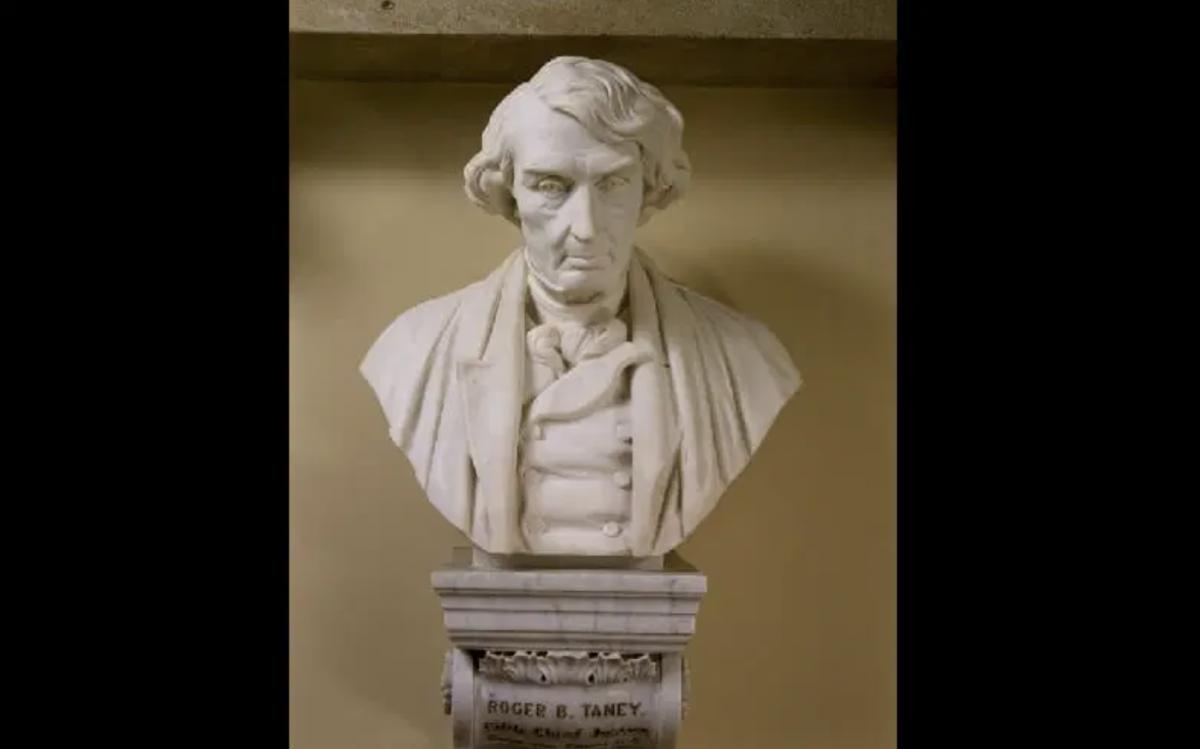According to a States Newsroom report:
“The U.S. House voted Tuesday to remove from the Capitol a bust of the late Supreme Court Chief Justice Roger Taney, a Marylander who wrote the despised Dred Scott decision—as well as evict statues and busts of men who fought for the Confederacy or served in its government.
“The legislation passed on a vote of 285-120, with all the nay votes from Republicans and 67 of them voting with Democrats. It would replace the marble bust of Taney, which is displayed outside the old Supreme Court chamber on the first floor of the Capitol, with one of the late Thurgood Marshall, a fellow Marylander who was the first Black member of the Supreme Court.
“Maryland Rep. Andrew P. Harris (R) voted against the measure; the rest of the state’s delegation supported passage of the bill, which was sponsored by House Majority Leader Steny H. Hoyer, who represents Maryland’s 5th Congressional District.
“Taney wrote the majority opinion in 1857 in Dred Scott, a case initiated in Missouri. The ruling, which provoked intense opposition in the North, said that people of African descent were not citizens and had no right to bring suit in federal court — effectively upholding slavery.
“A similar bill passed the Democratic-controlled House last year on a bipartisan vote of 305-113, with 72 Republicans joining Democrats in support. But it did not advance in the Republican-controlled Senate, where Democrats now hold a slim majority.”


